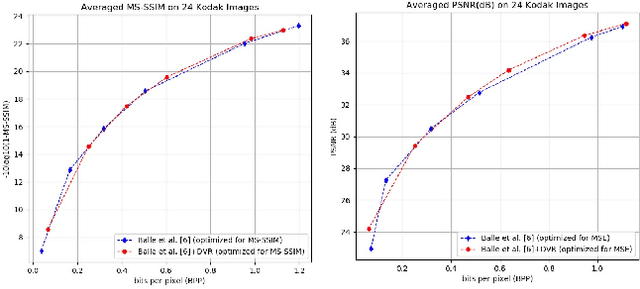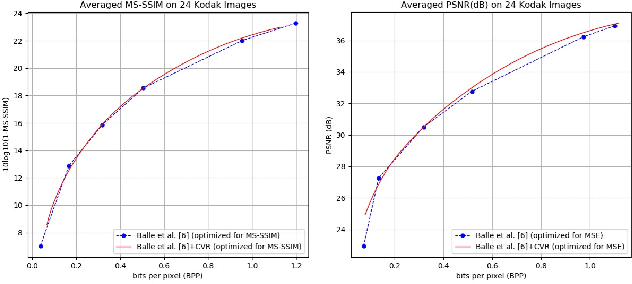Tiansheng Guo
Bit Rate Matching Algorithm Optimization in JPEG-AI Verification Model
Feb 27, 2024Abstract:The research on neural network (NN) based image compression has shown superior performance compared to classical compression frameworks. Unlike the hand-engineered transforms in the classical frameworks, NN-based models learn the non-linear transforms providing more compact bit representations, and achieve faster coding speed on parallel devices over their classical counterparts. Those properties evoked the attention of both scientific and industrial communities, resulting in the standardization activity JPEG-AI. The verification model for the standardization process of JPEG-AI is already in development and has surpassed the advanced VVC intra codec. To generate reconstructed images with the desired bits per pixel and assess the BD-rate performance of both the JPEG-AI verification model and VVC intra, bit rate matching is employed. However, the current state of the JPEG-AI verification model experiences significant slowdowns during bit rate matching, resulting in suboptimal performance due to an unsuitable model. The proposed methodology offers a gradual algorithmic optimization for matching bit rates, resulting in a fourfold acceleration and over 1% improvement in BD-rate at the base operation point. At the high operation point, the acceleration increases up to sixfold.
G-VAE: A Continuously Variable Rate Deep Image Compression Framework
Mar 04, 2020



Abstract:Rate adaption of deep image compression in a single model will become one of the decisive factors competing with the classical image compression codecs. However, until now, there is no perfect solution that neither increases the computation nor affects the compression performance. In this paper, we propose a novel image compression framework G-VAE (Gained Variational Autoencoder), which could achieve continuously variable rate in a single model. Unlike the previous solutions that encode progressively or change the internal unit of the network, G-VAE only adds a pair of gain units at the output of encoder and the input of decoder. It is so concise that G-VAE could be applied to almost all the image compression methods and achieve continuously variable rate with negligible additional parameters and computation. We also propose a new deep image compression framework, which outperforms all the published results on Kodak datasets in PSNR and MS-SSIM metrics. Experimental results show that adding a pair of gain units will not affect the performance of the basic models while endowing them with continuously variable rate.
 Add to Chrome
Add to Chrome Add to Firefox
Add to Firefox Add to Edge
Add to Edge